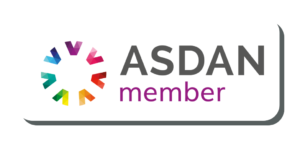Health & Hygiene
Health and hygiene are essential aspects of personal, social, and health education (PSHE) for young people. Health refers to maintaining a balanced physical, mental, and emotional well-being through proper nutrition, regular exercise, stress management, and seeking medical care when necessary.
Hygiene, on the other hand, focuses on practices that promote cleanliness and prevent the spread of diseases. This includes personal grooming habits like hand washing, dental care, and maintaining good hygiene during menstruation or illness. Teaching health and hygiene in PSHE equips young people with the knowledge and skills to make informed choices about their overall well-being, fostering healthy habits that can benefit them throughout their lives.

Your body
Puberty can happen at different stages for both boys and girls and have different effects on how you look and feel. Have a look at our lessons to learn more about what to expect.
Pregnancy is not something to be taken lightly and with more and more children becoming parents, it’s important to be aware of not only what happens to the body but what happens when the baby is born. We have put together this information sheet here, to help understand and have better conversations around pregnancy.
Hand washing is crucial for preventing the spread of germs and illnesses. Proper hand washing with soap and water removes dirt, bacteria, and viruses that can cause diseases like the flu, colds, and food poisoning.
It’s recommended to shower or bathe at least once a day to maintain personal hygiene and cleanliness. However, this may vary depending on factors like physical activity, weather conditions, and personal preference.
Proper dental hygiene, including regular brushing, flossing, and dental check-ups, helps prevent cavities, gum disease, bad breath, and other oral health issues, while also contributing to overall health and well-being.
Maintaining good hygiene during menstruation involves changing sanitary pads or tampons regularly, practicing proper hand washing, and keeping the genital area clean to prevent infections and odors.
Exercise
Regular exercise offers numerous health benefits, including weight management, reduced risk of chronic diseases, improved mental health, increased energy levels, and better sleep quality.
It’s recommended to shower or bathe at least once a day to maintain personal hygiene and cleanliness. However, this may vary depending on factors like physical activity, weather conditions, and personal preference.
Mental Health
Effective stress management techniques include regular exercise, meditation or deep breathing exercises, getting enough sleep, practicing time management, and seeking support from friends, family, or a mental health professional when needed.
Healthy eating
A balanced diet that includes a variety of nutrients from fruits, vegetables, whole grains, lean proteins, and healthy fats is essential for maintaining overall health, supporting growth and development, and reducing the risk of chronic diseases.
The recommended daily water intake varies, but most health organisations suggest drinking around 8 cups (64 ounces) of water per day for optimal hydration.



